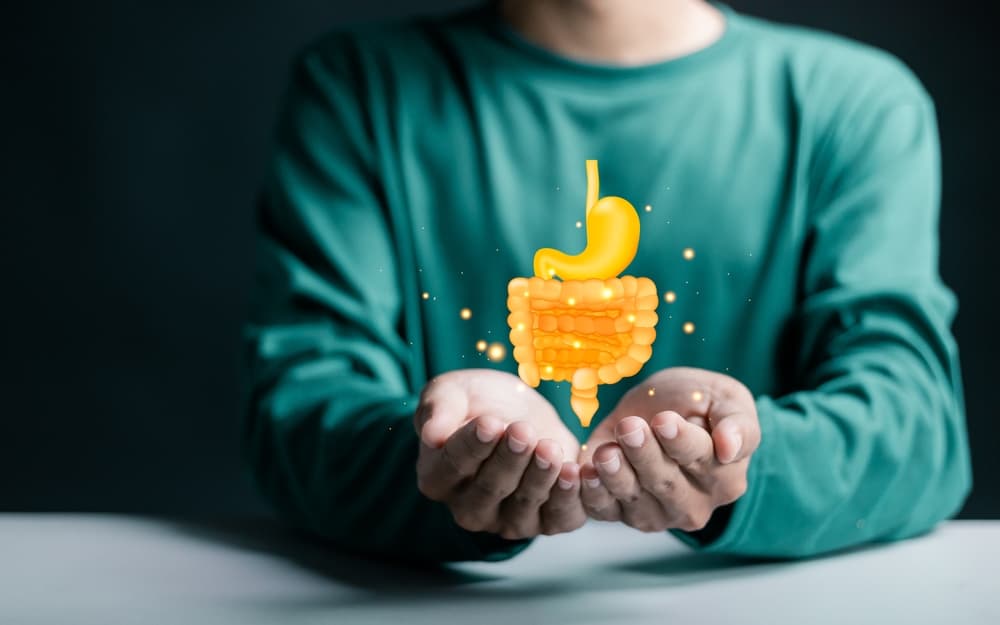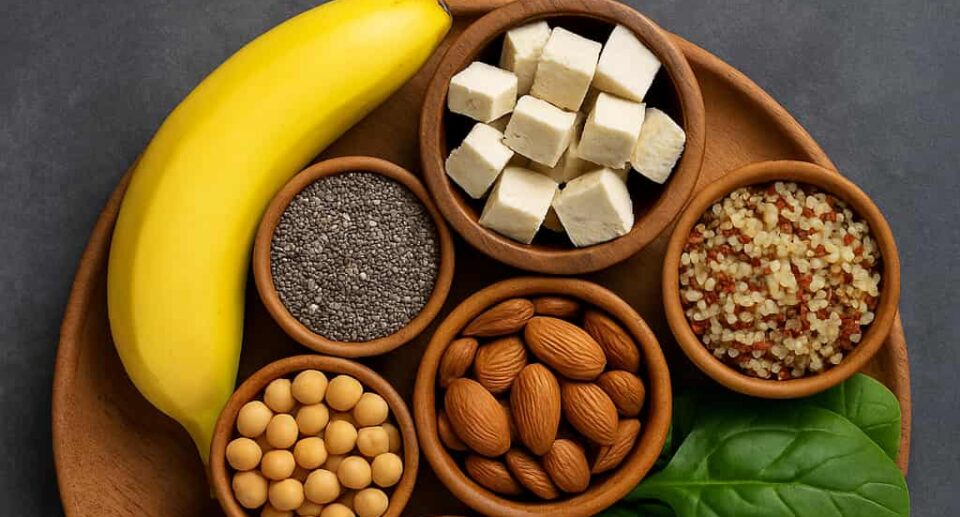The connection between mental health and gut health


Our mental state does not only depend on the brain; it is also deeply connected to another important part of the body, and that is our gut or digestive system. Recent studies have shown that the millions of bacteria in the gut play a major role not only in the digestive process, but also in our mood, thinking, and mental well-being. This is called the Gut-Brain Connection, where the brain and gut communicate with each other through nerves, hormones, and chemical signals. The connection between mental health and gut health shows how a balanced gut can improve mood, focus, and overall well-being.
When the balance of gut bacteria is disrupted, inflammation increases in the body, and depression, anxiety, insomnia, or stress levels can increase. On the other hand, maintaining a healthy diet, adequate sleep, and peace of mind also keeps the gut in good balance, which helps improve mental health.
Today, we will learn in detail how the gut and brain are connected, which foods and lifestyle habits help with mental health, and how you can keep your gut health in good shape and keep your mind happier and calmer.
“Your gut and brain are connected through millions of nerves, most importantly the vagus nerve. An unhealthy gut can send signals to the brain that trigger mood changes, anxiety, and even depression.”Harvard Health Publishing
The impact of gut health on mental health
The impact of gut health on mental health is now scientifically proven. Your gut, also known as the “second brain,” directly controls your mood, emotions, and cognitive function. When gut health is poor or the balance of gut microbes is disrupted, it affects your mental health in several ways:
1. Disruption of neurotransmitter production
Serotonin: About 90% of your body’s ‘happy hormone’ serotonin is made and stored in the gut. It plays an important role in regulating mood, sleep, and appetite. When bad bacteria dominate or become unbalanced in the gut, serotonin production decreases.
Result: Decreased serotonin levels can increase the risk of symptoms of depression and anxiety.
2. Increased inflammation
Intestinal weakness: An unhealthy gut often weakens the intestinal lining. As a result, bad bacteria and their toxins enter the bloodstream.
Inflammation in the brain: These toxins and inflammatory chemicals released by the body’s immune system reach the brain through the gut-brain axis. When chronic inflammation occurs in the brain, it negatively affects mental health.
Result: This can increase the risk of mental fatigue, lack of concentration, and mental health conditions.
3. Reduced stress management ability
The gut microbiome directly affects our stress response and ability to cope with stress.
Healthy microorganisms produce compounds that help regulate the stress hormone cortisol.
The result: When gut health is poor, the body cannot handle stress well, which can lead to chronic anxiety and sleep problems.
4. Increased risk of neurological diseases
Studies have shown that gut imbalances may be linked not only to mood, but also to some more serious neurological conditions:
Cognitive function: Poor gut health can affect memory, learning ability, and overall thinking speed.
Neurodegenerative diseases: Some studies have indicated a role for the gut microbiome in the progression of conditions like Parkinson’s or Alzheimer’s disease.
How to improve gut health


1. Dietary changes: Eat the right foods
Include the following ingredients in your diet to nourish your gut microbes:
a. Probiotics are beneficial bacteria
These are live microorganisms that provide beneficial bacteria directly to your gut.
Food sources:
Yogurt or sour yogurt: especially yogurt with live and active cultures.
Fermented foods: kimchi, sauerkraut, kefir, and kombucha.
Panta rice: This traditional food is also a source of natural probiotics.
B. Prebiotics Bacterial foods
These are fibers that act as food for the beneficial bacteria in your gut and help them grow.
Food sources:
Fruits and vegetables: bananas, garlic, onions, leeks, and asparagus.
Grains: oats, barley.
Pulses and seeds: peas, chickpeas, lentils.
C. Fiber-rich foods
Different types of fiber keep the digestive process smooth and help maintain the diversity of the gut microbiome.
Food sources:
A variety of fruits, vegetables (broccoli, spinach, carrots), and whole grains (oats, brown rice).
Aim to eat at least 30 different plant-based foods per day.
d. Healthy fats
Olive oil: The antioxidants in it help reduce intestinal inflammation.
Omega-3 fatty acids: Oily fish (salmon), walnuts, chia seeds, etc., are helpful in reducing intestinal inflammation.
2. Lifestyle and Habit Changes
Along with food, some lifestyle changes are very important for gut health. Stress, sleep, exercise, drinking water, and eating habits all of these are closely related to your gut health.
Stress
Excessive stress increases the level of the hormone Cortisol in the body and disrupts the balance of the gut. As a result, digestive problems, gas, and mental instability can occur. Therefore, practicing meditation, yoga, or deep breathing for some time every day is very beneficial for gut health and mental peace.
Sleep


Adequate sleep helps maintain the natural rhythm of the gut microbiota. Try to sleep at least 7–8 hours every night, because lack of good sleep can lead to digestive problems and attention deficits.
Exercise
Regular exercise increases intestinal motility, which smooths the digestive process and helps prevent constipation. At least 30 minutes of walking, yoga, or light physical activity every day strengthens the gut-brain connection.
Adequate water
Drinking adequate amounts of water during the day is very important for the gut. Water dissolves fiber and helps soften stools, which makes digestion easier and flushes out toxins.
Eat slowly
Chew your food slowly and carefully. Chewing well helps the first step of digestion to be completed properly and reduces unnecessary stress on the intestines. Eating slowly also calms the mind and prevents overeating.
3. What to avoid
It is important to eliminate or limit some foods and habits that damage the intestines:
Processed foods: Foods high in sugar, unhealthy fats, and artificial additives.
Excessive sugar and artificial sweeteners: These can encourage the growth of harmful bacteria.
Excessive alcohol and caffeine: Excessive consumption can irritate the intestines.
Unnecessary antibiotics: Do not take antibiotics without a doctor’s advice, as they also kill beneficial bacteria and disrupt the balance of the intestines.
Important Note: If you have chronic digestive problems or suffer from a condition like IBS or IBD, be sure to consult a specialist before making any diet or lifestyle changes.
FAQ
Q 1: How does gut health affect mental health?
Gut health influences mental health through the gut-brain axis a communication link between the gut and brain. An imbalance in gut bacteria can trigger stress hormones, inflammation, and mood changes, increasing the risk of anxiety and depression.
Q 2: What can I do to improve my gut-brain connection?
You can support your gut-brain connection by eating probiotic-rich foods (like yogurt, kefir, and kimchi), getting 7-8 hours of sleep, managing stress through meditation or deep breathing, staying hydrated, and exercising regularly.
Key Takeaways the connection between mental health and gut health
Our mental health is not only controlled by the brain; it is also deeply related to our gut health. The beneficial bacteria in the gut not only digest food, but they also affect our mood, thoughts, and emotional stability. When the gut is out of balance, problems like stress, anxiety, and even depression can arise.
However, the good news is that it is completely possible to restore this balance. Eating nutritious foods, consuming probiotics and fiber-rich foods, getting enough sleep, managing stress, and exercising regularly can strengthen the gut-brain connection and have a positive impact on mental health.
Ultimately, if you want a healthy mind, you need a healthy gut first. The better your gut is, the more mentally calm, energetic, and balanced you will be. So take care of your gut health today because a healthy gut can be the beginning of your happy life.









